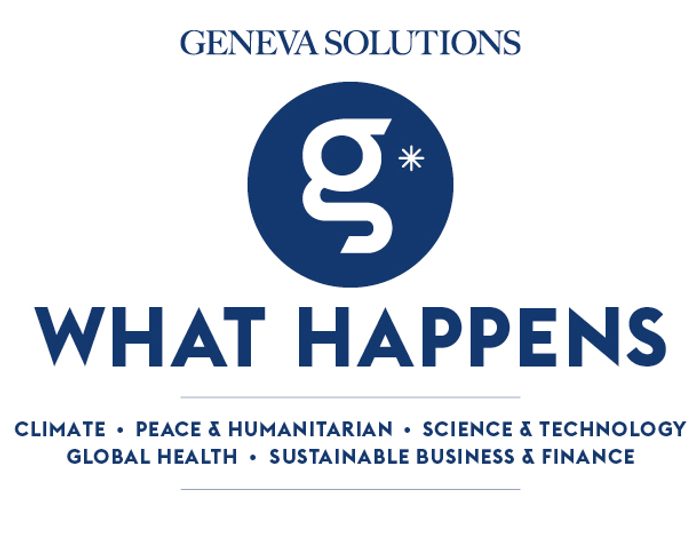Good morning, this is Michelle. It has now dawned on countries that two years was not enough time to forge a global agreement on how to address pandemics – now they have to agree on what to do next to finalise a deal.
But controversy at the World Health Assembly isn’t only reserved to treaty talks as negotiations on other resolutions behind closed doors show. And ahead of a labour conference next week, a Ukrainian unionist calls to exclude his Russian counterparts. |

World Health Organization member states exchange views over what to do next with parallel negotiations on a new pandemic treaty and to amend existing global health rules at the World Health Assembly at Palais des Nations on 28 May 2024. (Michelle Langrand/Geneva Solutions)
|
|
|
🌞26 MORE EXTRA HOT DAYS.
In the last year, the average person experienced 26 more extremely hot days than they otherwise would have were it not for human-induced climate change, putting billions of people at risk, a new analysis has found.
Last year was the hottest for the planet, with each of the last 12 months breaking its previous monthly record, as the burning of fossil fuels continues to spew huge amounts of heat-trapping gases into the atmosphere. Since May 2023, nearly 80 per cent of the world’s population experienced at least 31 days of abnormal heat that was made twice as likely due to climate change, the findings released Tuesday showed.
|
|
Far from average.
This number is just an average, and “we are not average people”, said one of the report's co-authors, Dr Friederike Otto, the co-founder of the World Weather Attribution (WWA), a scientific initiative that analyses extreme weather events. In reality, the number of extreme heat days varies greatly depending on the country and the place. In Ecuador, for example, inhabitants experienced 170 more days of abnormal heat compared to just 10 that they would usually experience without climate change, Otto told journalists in Geneva. “That is six months of extreme heat instead of just 10 days.”
|
|
Defining extreme heat.
Scientists used data from 1991 to 2020 to calculate the number of days where temperatures breached the top 10 per cent for each region. But extreme heat also hugely depends on vulnerability, said Otto. “If you live in a city that is well-built for heat, then very high temperatures can be no problem, but if you are living in a refugee camp with no shade, then lower temperatures can be considered very extreme heat.”
|
|
Nothing like a good plan.
As large parts of the world are once again in the throes of extreme heatwaves – with temperatures hovering at 50 degrees in India and Pakistan – Otto said cities can develop “heat action plans” to help protect inhabitants from heatwaves, while larger-scale policies can be adopted at national levels. The Red Cross Red Crescent Climate Centre, which collaborated on the report with WWA and Climate Central, a research organisation, said it will launch its third Heat Action Day on Sunday to raise awareness and share information about the dangers of extreme heat.
- Kasmira Jefford
|
|
Here's what else is happening
-
🇷🇺Workers’ ‘union’ of Putin's genocidal regime has no place in ILO governing body.
Admitting the Russian union FNPR, which participates in the occupation of Ukraine, to the International Labour Organization’s leadership would destroy the credibility of the International Trade Union Confederation, warns Vasyl Andreyev, a member of the Ukrainian delegation to the ILO.
Le Temps (FR)
-
⚥ Conservative member states balk at references to ‘gender’ in WHA resolutions.
Some countries have objected to the use of the terms “gender responsive” and “advancing gender mainstreaming” in behind-the-scenes negotiations on several resolutions before the World Health Assembly, according to a wide variety of sources.
Health Policy Watch (EN)
-
🚢Is the EU already in a trade war with China?
European officials and China both insist they follow WTO rules, but EU-led investigations into Chinese electric cars could challenge this assertion.
Politico (EN)
-
⚖️The international laws that changed the world, and the people who fought for them.
The Inside Geneva podcast hears from the people, including humanitarians and medical workers, who campaigned to make our world safer, and asks, are we honouring their laws and their sacrifices?
Swissinfo (EN)
|
|
GS news is a new media project covering the world of international cooperation and development. Don’t hesitate to forward our newsletter!
Have a good day!
|

|
|
Avenue du Bouchet 2
1209 Genève
Suisse
|
|
|
|








